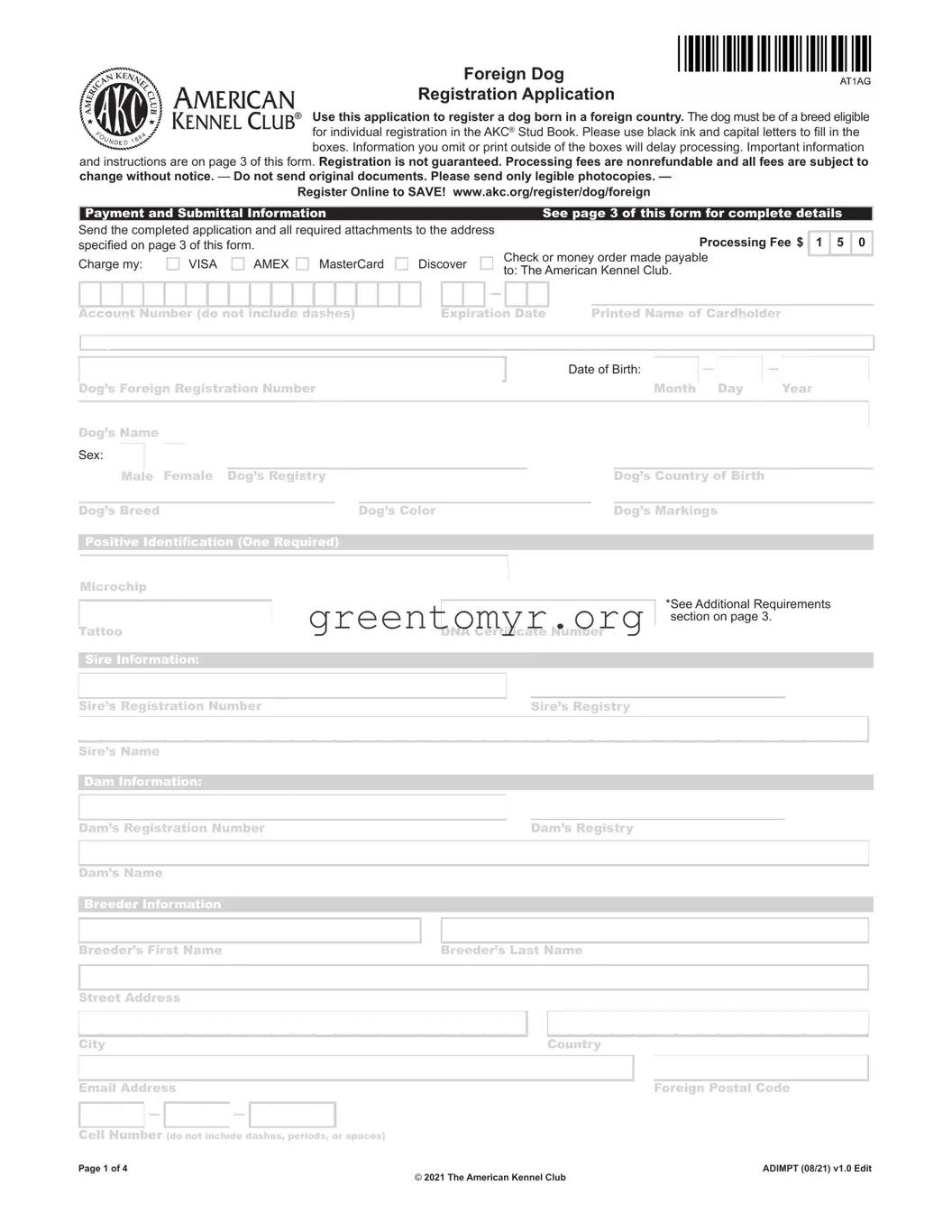Misconception 1: Dogs must be born in the U.S. to use the AKC Foreign Dog Registration application.
In reality, this form is specifically designed for dogs born in foreign countries. As long as the dog belongs to a breed eligible for registration in the AKC Stud Book, it can be registered.
Misconception 2: A completed application guarantees registration.
Submission of an application does not guarantee that the dog will be registered. The AKC reserves the right to deny registration after reviewing the application.
Misconception 3: Original documents must be submitted with the application.
Applicants should only send photocopies of any required documents. Sending original documents can lead to unnecessary complications and delays.
Misconception 4: Any breed can be registered through this application.
Only breeds that are eligible for individual registration in the AKC Stud Book can be registered using the Foreign Dog Registration application.
Misconception 5: Processing fees are refundable.
Once paid, processing fees are nonrefundable. This means that if an application is denied or withdrawn, fees will not be returned.
Misconception 6: The application does not require any specific formatting.
It’s crucial to complete the form using black ink and capital letters. Improper formatting can cause delays in processing.
Misconception 7: All foreign titles and qualifications will appear on AKC documentation.
Only the dog’s registered name as indicated on the Foreign Registration Certificate will appear. Foreign titles will not be included in AKC records.
Misconception 8: You can register your dog even if its foreign registration info is incorrect.
The AKC requires that the application and foreign registration reflect identical ownership. Discrepancies can lead to denial of the application.
Misconception 9: A supplemental transfer statement isn’t necessary unless ownership changes.
A supplemental transfer statement is required for each intermediate transfer of ownership before registering the dog. This is crucial for accurate record-keeping.
Misconception 10: You can verbally certify information without signatures.
The application requires signatures from the first U.S. owner or foreign owner(s) to certify the accuracy of the information provided. Without these, the application cannot be processed.




